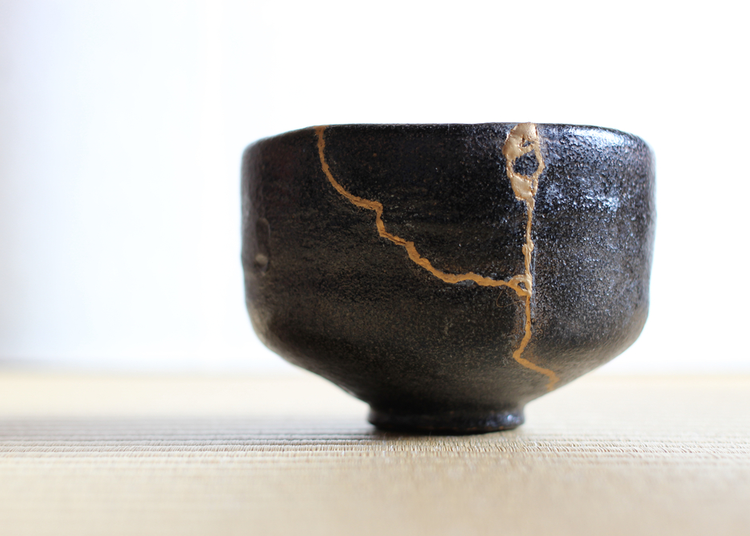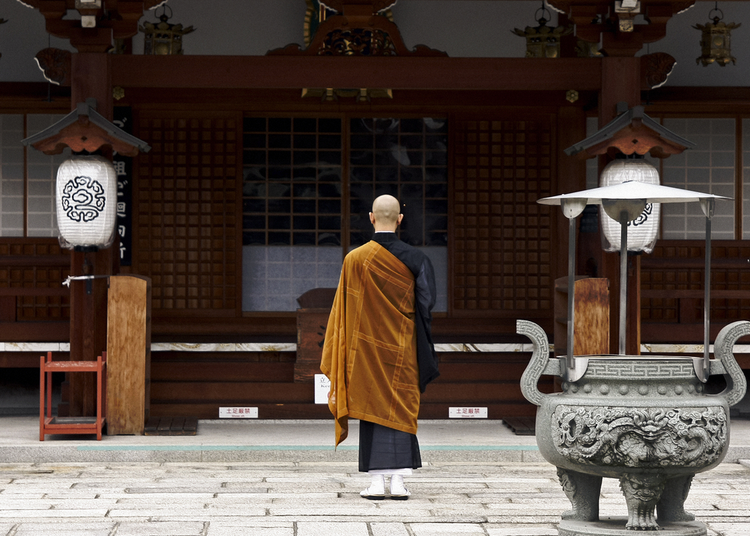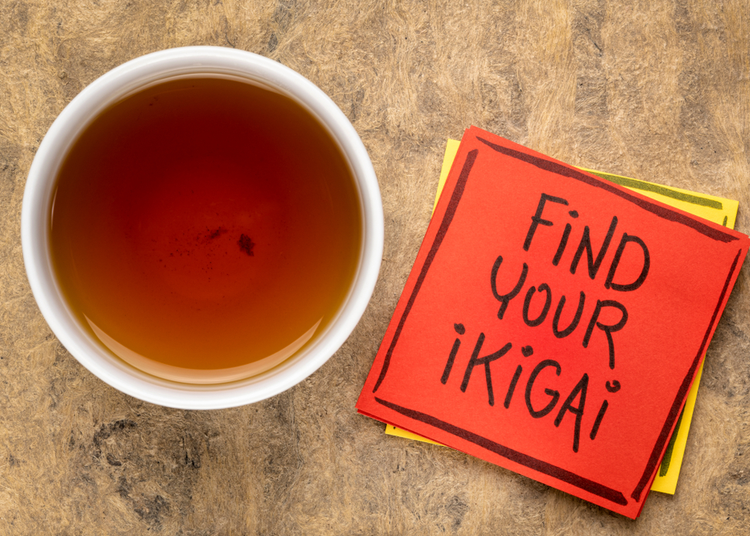How to Say Japan Will Rise Again in Japanese

'Say what?' 20 Absurd Words that Only Exist in Japanese
Date published: 15 October 2020
Final updated: 17 February 2021
There are loads of funny, colorful, and cool Japanese words that just don't take a direct translation into English.
Nihon has a long and rich history, and its famously complex language reflects that. The language of a state can give you perspective on and insight into the culture and attitudes of the people that employ it.
Naturally, there are a plethora of words in Japanese that simply don't take a i-to-1 English equivalent. They range all the way from the hilarious to the poetic to the spiritual.
These cool Japanese words are all certain to put a smile on your face, and about if not all volition take y'all wondering, "why don't we have a word for that in English!?"
1. KY (adj.)

The English letters 'KY' are used as a shorthand for the Japanese phrase "kūki yomenai", meaning "tin can't read the room," or more literally, "tin't read the air." You can say a person is KY if they are socially bad-mannered or inappropriate.
Japan has a very high context civilization, which means that a lot of social interactions involve suggesting things indirectly, inferring implied significant, and non speaking frankly or saying things outright.
If this is at odds with your own cultural groundwork, you might observe Japanese conversation a little challenging to navigate at first! In the meantime, yous may, unfortunately, be a little on the KY side equally far as natives are concerned.
2. 木漏れ日 Komorebi (n.)

This beautiful word refers to the light that filters through the trees, dappling the forest floor. It's a poetic word that evokes imagery of a peaceful, natural scene. Next fourth dimension you're out for a stroll in the woods, take a moment to appreciate the gently shifting komorebi and curiosity at the fact that there's no word for it in English!
3. わびさび Wabi-sabi (north.)

Wabi-sabi is the very Japanese style of art and aesthetics emphasizing simplicity and restraint. It is an appreciation of the beauty of imperfections and impermanence. Things and art that fall into this category are generally very simple but inspire a feeling of calm. Wabi-sabi brings to heed things similar apprehensive shrines and roughly made pottery.
four. 別腹 Betsu bara (n.)

Anyone with a sweet tooth can relate to the mystery of the betsu bara, or "separate tummy." This handy noun refers to the mysterious extra room you find y'all take for dessert afterwards a large meal.
While the science behind said miracle is actually known, this amusing give-and-take is perfect for explaining sheepishly why no, you lot're not washed eating thanks very much, and you don't care for the judgment. (OK, peradventure 'dessert stomach' is somewhat like, but at present y'all know Japan has a discussion for it too!)
five. 森林浴 Shinrinyoku (northward.)

Literally "forest bathing," shinrinyoku is the act of going into a forest to unwind and breathe in the fresh air. The refreshing feeling of spending time in nature and away from culture is widely known to be good for your mental health, and so how is it that we don't accept a word similar this in English? If you haven't withal, definitely try some shinrinyoku therapy; information technology is complimentary, afterwards all.
six. 積ん読 Tsundoku (north.)

Tsundoku is fabricated upwards of the words "tsun," here pregnant "pile up," and "doku," meaning "to read." Volume lovers are probably all guilty of this one, as it refers to the act of ownership lots of books and not reading them, leading to a pile of unread books.
If you've just realized that you've got a bit of a tsundoku habit, allow this be a sign that you should crevice open up a book or two!
7. シブい Shibui (adj.)

This super-specific adjective is used to depict something or someone that has aged gracefully and gotten cooler with historic period. The closest English equivalent might exist to say they've "aged like a fine wine."
Young people nowadays only love old, weathered things like exposed brick or ripped jeans. Equally an appreciation of all things shibui gets more widespread, the need for a word to describe it could potentially follow!
8. 過労死 Karōshi (north.)

This dark word is somewhat well known in the English-speaking globe these days, but is worth mentioning to understand some of the pressure that has arisen in some corners of the working world.
Divers equally "expiry from working too much/overwork," karōshi doesn't just mean dying of stress-induced natural causes; information technology includes everything from keeling over at your desk because yous've had a heart attack to even as far equally taking your own life because your job is likewise stressful.
A tragic karōshi incident in 2015 got a lot of companies reevaluating the amount of pressure being put on employees. Hopefully, things volition improve soon, and i solar day this word won't all the same be effectually.
9. 紅葉 Kōyō (northward.)

Perchance all-time translated as "autumn foliage," this succinct word describes the brilliant colors of the leaves in autumn. While not impossible to translate or at to the lowest degree draw, the fall leaves are definitely a bigger deal in Japan than in near other places as the rich red leaf here is merely so beautiful. Every year people travel far and wide to run into the almost gorgeous leaves from the best vantage points.
10. 口寂しい Kuchisabishī (n. + adj.)

This charming phrase means that your "oral cavity is alone," and describes eating out of boredom rather than hunger. We've all had an unwarranted treat when there's been nothing else to do, simply for some reason just didn't accept quite the right give-and-take to describe this absentminded munching until today! Peradventure giving this bad habit a proper name volition make it easier to stop...
11. 猫舌 Nekojita (due north.)

Japanese people really like their food and drinks to exist piping hot, as in hot enough to cause moderate damage. Those lesser mortals who accept to blow on their lava-like nutrient before eating it are said to accept a "nekojita," or a "cat tongue." This somewhat surreal word is said to have originated in the Edo period and is based on the fact that cats (allegedly) don't like to eat hot food.
12. 飲ミュニケーション Nomunication (north.) and たばこミュニケーション Tabaccomunication (n.)

These words are both portmanteaus. Nomunication comes from the Japanese word "nomu" (drink) and the English word "communication", and refers to "communication while drinking" (specifically alcohol). Tabaccomunication comes from the words "tobacco" and "communication," and unsurprisingly means "advice while smoking."
These can both be seen as pretty important in a lot of jobs in Japan. They generally refer to things like talking business over drinks with colleagues afterwards work or having a chat while on a fume intermission. While these can sometimes be constructive networking skills in Japan, they certainly aren't recommended for health reasons, and it seems younger generations are starting to stray abroad.
xiii. 三日坊主 Mikka Bōzu (n.)

This means "three-mean solar day monk," and refers to someone who gives upward or gave up on something very rapidly. It can too take the nuance of initially starting with much passion and intensity, only to then falter very fast. Buddhist monks have quite a strict routine of extremely early mornings, cleaning, and tough training, and then throughout history, quite a few people have understandably thrown in the towel early on on.
14. ありがた迷惑 Arigatameiwaku (n.)

Arigatameiwaku is a combination of the words "arigatai" and "meiwaku," which mean "grateful" and "nuisance" respectively. This is used to describe a very specific state of affairs in which a person goes out of their way to do something for you that you didn't desire them to do in the first identify. This "favor" ends up causing problems for you, but social norms force you to show gratitude anyhow.
Near people accept probably met someone who was insistent on being "helpful" even when nobody wanted them to be. For example, a figurer illiterate yet confident family fellow member who tries to do things for you on your laptop that you definitely could accept done faster. These are the sorts of people that cause a lot of arigatameiwaku, oblivious to the true feelings of everyone forced to dust their teeth and hiss thanks at them.
15. 生きがい Ikigai (due north.)

A combination of "ikiru," meaning "to live," and "gai," significant "reason," your ikigai is, therefore, your reason for living or purpose in life. Your ikigai could be a hobby you're passionate near, a special person or pet in your life, or some world-changing activism. Any it is, it gets y'all out of bed and lights a burn down under y'all, and then make fourth dimension for your ikigai every bit much as possible!
If you've realized while reading that you might be a chip of a mikka bōzu, perchance you just haven't found your ikigai yet!
16. 木枯らし Kogarashi (n.)

This is the first common cold wind y'all feel in autumn that lets y'all know wintertime is fast approaching. Information technology means "leaf-shaking current of air," and it might take you shaking likewise! Depending on your feelings near winter, the coming of kogarashi is either exciting or foreboding. Nicely reflecting a lot of Japanese civilization, this word is both poetic and practical.
Every linguistic communication has its own quirks that make them interesting and unique, and Japanese is no exception. With a peachy assortment of humorous and descriptive words for everyday life, besides equally for highly specific situations, learning Japanese is a fun and rewarding way of learning about a people and culture with a fascinating history and nowadays.
Accept this as both a language and a culture lesson in one; when you come to Japan, you know now why it'due south important not to be KY or a kucharā! And if yous go for some rejuvenating shinrinyoku while you're here, make sure to enjoy the komorebi and kōyō that you might not have appreciated as much earlier they were pointed out to y'all.
17. ばたんきゅう Batan-kyū

Batan-kyū has fallen somewhat out of use, but is an onomatopoeia that is generally written in coincidental situations rather than spoken, and is used to depict that feeling when you lot are so tired you bomb into bed and fall directly to slumber.
"Batan" denotes the "bomb", where you autumn onto bed, and "kyū" describes the stillness that follows, when you autumn straight to sleep. Recollect about the last fourth dimension y'all came home from piece of work and without even having dinner you roughshod direct into bed... Then the next affair y'all knew it was morning!
Our last three words have mostly fallen out of utilise, but are pretty interesting insights into what was popular at the time.
18. 物の哀れ Mono no Aware (due north.)

Mono no aware is very like to wabi-sabi, merely is an older discussion that is not used equally much now. It refers to appreciating the bittersweet impermanence of something'due south fleeting beauty since nothing lasts forever. It'southward very in line with the Buddhist idea of beingness in the moment and letting things become, although it besides suggests a sort of wistfulness.
While both of these words are on the more old-fashioned side, the untranslated phrase mono no aware appears in one of Marie Kondo's books, and then possibly it's fourth dimension for a improvement?
19. キープ君 Proceed-kun (n.)

This i might seem a lilliputian harsh, but a Go along-kun is a placeholder boyfriend who is only kept around until someone better shows up. The unfortunate label comprises the English give-and-take "keep," and the Japanese honorific "kun," which is a suffix added to men's names to show affection or closeness.
Take center in the fact that this word is generally only used past older generations and has mostly fallen out of pop utilise. Hopefully, that means there are fewer poor souls existence used equally Keep-kuns!
20. クチャラー Kucharā (northward.)

The give-and-take kucharā is a piffling dated, but it refers to a person who chews with their oral cavity open.
Japanese is absolutely chockablock with onomatopoeias, and the one for the sound made by chewing with your mouth open is kucha-kucha. Add together that to the English suffix -er, equally in "player" or "worker," and you've got a perfect succinct word for noisy eaters.
While eating with your oral cavity open is acceptable in some cultures, in Japan information technology is considered quite rude. Slurping your noodles, on the other hand, is A-okay! So slurp abroad and and so shut your mouth to chew. Tabular array manners vary a lot from country to country, so make sure to read upward on eating dos and don'ts before jumping on a plane to Nippon!
Written by:

*This information is from the fourth dimension of this article's publication.
*Prices and options mentioned are discipline to change.
*Unless stated otherwise, all prices include tax.
Source: https://livejapan.com/en/in-tokyo/in-pref-tokyo/in-tokyo_suburbs/article-a0004478/
0 Response to "How to Say Japan Will Rise Again in Japanese"
Post a Comment